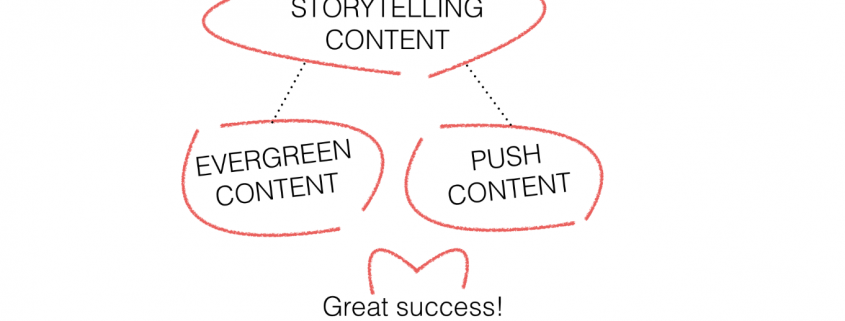Producing a science communication podcast – some professional advice from Max Landergård
 Try to identify what listeners would like to hear, create a forum where they can contribute, and you can make a very effective podcast. This is the advice of Max Landergård, entrepreneur, published author and lecturer within podcast production, founder, and co-owner of Storstad Medieproduktion, a storytelling start up based in Stockholm, Sweden.
Try to identify what listeners would like to hear, create a forum where they can contribute, and you can make a very effective podcast. This is the advice of Max Landergård, entrepreneur, published author and lecturer within podcast production, founder, and co-owner of Storstad Medieproduktion, a storytelling start up based in Stockholm, Sweden.
The Crastina theme of the summer of 2017 is “working with the pros”.
When is it convenient to use a podcast as a communication channel?
When LinkedIn is too stiff, Instagram too fast, Facebook to diffuse and Snapchat too superficial, podcast is the media for your stories. It is much cheaper than making a film about your subject and still, when pictures, film and text does not make it all the way – you can achieve in depth influence on your listeners through podcasts.
What techniques are needed to have a good dialogue with listeners?
That is where the marketing strategy comes in. You will need to have a forum where listeners can ask you about the content, give feedback and contribute. One important thing is to never forget to give people credit for their contribution.
If you want to call yourself a storyteller – you should give people something to believe
What are the challenges of podcast production?
Once you are in the studio, you need to strive more than in other media to express yourself in a way people comprehend. Besides, the host or reporter making the interview needs to make sure that the voices in the show can serve as the eyes of the listener. It is easier to take a shortcut when you make a film or shoot a documentary because the spoken narrative is often amplified or can be enhanced with images of what the interviewee is talking about. You do not have that support in a podcast production. You cannot rely on that people will understand. People are smart, but they get incurious when one is not able to paint the big picture. On the other hand, narrow it down. This makes a podcast production more challenging and in the end, hopefully, more brilliant.
Do you see any peculiarities in using a podcast for science communication?
Podcasts are often used to highlight topics in science. I usually say that film is about amusement, whereas podcast is the intellectual expression in the media landscape. It is striped down, it comes without make up and the only thing you can attract one’s attention with is with your voice, your topic that you are addressing.
It is hard to come to a person so close, as you do with podcasts. If someone listens to your podcast while on a run with earphones, you are inside their head talking to them. Communication through podcast is intellectual and intimate.
The New Yorker Radio Hour, Freakonomics, BBC Radio 4 – In Our Time, The Mainframe, The Art of Manliness and Big Picture Science just to mention a few that has made a good job in making scientific(-ish in some cases) podcasts.

Give some recommendations for the creation of one’s own podcast
You will need to take into consideration the vast amount of content that is out there. My recommendation is to, before you start, ask yourself several questions
- What do you have that the listeners would be keen to hear?
- Picture your audience, who are they, what are their needs?
- What do you want your audience to do when they have listened to your podcast? Do you have any call to action?
These are fundamental questions that need good answers to before you do anything else. It is not about you having stuff to say, it is about what people need to hear. Big difference and one of the early insights that you as a podcast consumer have when you scroll amongst the shows. It will take you a nano second to hear if the person talking is doing it for you or just for the sake of air all of his/her thoughts into the void.
When you are done contemplating on the issues above, you will need a marketing strategy in order to make people aware of your pod. That is a whole chapter of its own though so I will leave it at that 🙂 and people are free to contact me if they have further inquiries.





Leave a Reply
Want to join the discussion?Feel free to contribute!